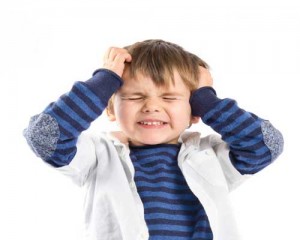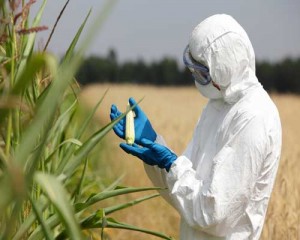Holistic Psychiatry
Some of the biggest take-aways from this interview with Phyllis Heffner:
- Just because two people are depressed we can’t assume that the causes of their depression are the same
- Some of the changes in our genes caused by exposures and the environment can affect our children, our grandchildren and even our great grandchildren.
- Bacteria and yeasts can produce neurotoxins that can harm our nervous system
- Lipopolysaccharides made from bacteria for instance can cause leaky brain
- Often the food that people crave is the food that people are most sensitive to
- Sensitivities to artificial flavouring, colouring and sweeteners are common
- Oxalates are toxins that can get stored in the body and cause a great deal of pain in the eyes, joints, muscles, kidneys and cause problems in the brain
- Eliminating all possible allergens can be more effective in finding the root cause than eliminating one by one because if a person is sensitive to more than one food they will continue to have the symptoms and will not know from which food it is coming
- It is really important that people not go from eating a high oxalate diet to a very low oxalate diet quickly because stored oxalates will be released into the bloodstream and this is dangerous
- Antifreeze is high in oxalates
- If you cannot avoid toxins, detoxify
- We may have gut problems or imbalances affecting the brain and affecting our mood that we DON’T KNOW ABOUT
Transcript of an interview with Dr. Phyllis Heffner, October 2015:
I’m so excited to have Dr. Phyllis Heffner here, thank you for being here with us.
So for the readers in our community Phyllis is double Board Certified in both General Psychiatry and Child and Adolescent Psychiatry. She attended Medical School at Pennsylvania State University in Hershey, PA, USA, graduated in 1986 and was awarded the CIBA-Geigy Award for Community Service as well as being elected to Aloha Omega Aloha (the Medical Honor Society). She has practiced conventional Child and Adolescent Psychiatry for over 24 years, and has been a Medical Director in both a Partial Hospital Program and in Residential Treatment Centres. She has taught Medical Students , general Psychiatry Residents and Child Psychiatry Fellows when a faculty member at Children’s National Medical Centre in Washington, DC. She is currently transitioning from conventional psychiatry to an integrative private practice at this time after spending the past 1.5 years re-educating herself.
Hi Phyllis, it’s great to have you here. What makes you want to set up your own practice?
I’ve been doing conventional psychiatry for a long time and I personally had some health challenges that conventional medicine was not able to solve. I started looking for alternative ways of treating my own health problems and came across an integrated model that I then started thinking about using for mental health problems. Unfortunately in conventional medicine they are not all that trained or interested in using alternative methods other than the standard use of psychotropic medications to treat the child’s or adult’s problems. The only other option they give is talk therapy even though there are many other types of treatments available that have been shown to be very helpful. I felt that by eliminating those possible treatments we are limiting what benefit patients can get.
Absolutely. So you feel that you can be more effective by looking at the whole person?
A person is not one organ or one organ system. All the various parts of a person affect other parts and if we are not looking at them we are missing things. We need to look at the whole body, the whole person, in order to help with any problems or challenges they may have.
So what are some of the contributing factors to mental health challenges?

There are so many different factors… some factors include nutritional issues such as both the foods that are being eaten but also the nutritional content of the foods. It has to do with toxins a person may be exposed to that can be bacteria and viruses and yeasts and moulds can be heavy metals can be chemicals can be air pollution, it can be all kinds of things that are toxic. It can be sensitivities to different foods for example a food may be perfectly healthy but person’s body rejects it because they have developed antibodies that fight against that food. It can be lifestyle things such as not getting enough sleep or exercise, having a lot of stress, having had a lot of trauma in a person’s life. It can be having an illness of virus somewhere in the body and it can be anywhere in the body. It can be having a sensitivity to something called oxalates which are crystal that are in different types of foods that many people can handle but some people cannot. There are many many many different things and for each person it may look like the same symptoms but may be caused by a different problem. You can’t make the assumption that because someone is depressed their depression is caused by the same thing as the next person.

So even though something may look the same, for example have the same sort of symptoms, it may not be caused by the same things. For example not everyone who is experiencing depression has heavy metal toxicity.
Unless you are really searching for the underlying cause most of the time you will not be successful in fully treating that problem.
Okay so there seems to be an increase in the number of children with mental health challenges. Why is this? What is happening?
There are a number of reasons why this may be happening. One possibility that I think does happen sometimes is that we are more sensitive to these problems as a society and pick up some of these problems quicker than we used to. For instance a child on the autistic spectrum that might have been thought just to be a little bit eccentric in the past and not thought to be autistic as they didn’t meet the stereotype of what an autistic child “is”. So yes I think this is part of it but I don’t think that’s the majority of it.
There are many things that have affected our bodies and our genes in ways that we don’t fully understand and that we never could not have predicted. Human genes have not changed over the years so that’s not the issue. They’re the same genes. Our genes are turned on or turned off by things that we experience in our environment. There’ve been many changes happening in our environment since at least World War II and probably before that. Unfortunately some of the changes to our genes because the environment can be passed on to our children and to our grandchildren and even to our great-grandchildren. So a child that’s born that may be affected by something … now it may not be that the child or even the child’s parents that were exposed to something. It could’ve been the grandparents and they would not have known this at the time.
There are many things in the food supply. Food is very different than it used to be. Food is heavily processed and it doesn’t have the same kinds of nutrients that it used to have. There are all kinds of chemicals added to “food” including often has GMOs in it, food colourings, food preservatives and if a person is eating animal products they can be exposed to hormones, pesticides, herbicides and antibiotics that are given to the animals all of which get into the animal products that people eat. We have a lot of pollution in our world and that includes air pollution, pollution of the waters and all the plastics that we use that contain things like BPA. But also it is good to know the non-BPA plastics – we don’t know that those are really safe in fact a lot of researchers indicated they may be as bad or worse than BPA and causing problems.
There is Glyphosate which is the main chemical in Round-up… There are so many different things that our bodies are not designed to handle. There are heavy metals, there are increasing numbers of bacteria that don’t respond to the treatments we have anymore.
Certainly true
We have antibiotics that are in the animals feed and then the bacteria have been mutated. Any of those things can affect a person and you can’t always know which person is going to be affected and how.
I see. Okay so so what I heard is that if something happens to my child it may be my Grandmother’s fault?
She may have been the victim of something that she had no control over… If you live near a smelter you’re going to be exposed to lead around the city in the air.

okay 🙂
If you lived near someplace that had tremendous amount of your pollution going out into the river and that’s where you got your fish you would be exposed to heavy metals, it wasn’t something anyone did.
Right okay,
I hope we can stop blaming ourselves or someone else for this. The main issue is our culture and what we have done with our environment and with our food supply. We have depleted our soil of so many different important nutrients that even if we are eating the right food and even if it’s organic many times it doesn’t have the zinc or the magnesium or other nutrients that we would normally expect to be in that the food. (Selenium). We could be deficient. Iodine is not in our food supply very much anymore because the soils are depleted and all these things are going to affect our bodies and our brains and cause problems.
yes if we just don’t have the basic building blocks that we need for function…
That’s right and it has to be for our entire bodies function. It can’t be just thinking “oh well in the brain only really need these things so we don’t worry about the other aspects of the body”
okay so it’s not just about getting the essential fats and magnesium for example but if there is anything going wrong in another part of the body that can affect the brain too.

Absolutely so we really need to be looking at the whole body the whole brain the whole person to be able to get the best mental health condition. If someone is feeling lousy even if it is not directly affecting the brain it’s going to affect their mood, going to affect their behaviour. For instance if you have an infection in your gut those bacteria or that virus can set off chemicals that can be poisonous to the nerves and not just the nerves in that area. There is a nerve that goes from the brain down to the of the digestive system and messages sent from the brain go down to the gut and all the way back up to the brain. [Vagus]. If a person has the wrong kind of bacteria in the digestive system a neurotoxin or poison of nerves can get into the vagus nerve or get into other nerves and cause damage.
Right so even Candida..
Yes even candida, that’s one with a pretty bad reaction that causes this kind of issue
Or Clostridium for example… 🙂
Clostridia can completely disrupt the balance of several neurotransmitters like dopamine norepinephrine … yes all our bacteria and all the various microbes in our gut actually produce many more neurotransmitters than our brain does.
we don’t understand yet how much the neurotransmitters that the brain may affect the gut and how much the neurotransmitters made and gut are able to cross the blood brain barrier. We don’t know for sure. Honestly many people have heard the term leaky gut which basically means that something happened so that the surface that keeps things from getting from inside the gut all the way into the body has basically holes in it. Through these holes food particles and viruses and Candida can all pass through where they are not supposed to. The same goes for the brain and all the same things that can cross which are called lipopolysaccharides made from bacteria for instance can cause leaky brain.
Same bacteria – the same byproducts… in both areas… can cross through both of those barriers.
What do you think of food as a trigger?
I think food can be a trigger in many different ways. I think food can be a trigger, particularly if someone is sensitive to a certain food and that can be either a typical allergy that most people think of such as getting swelling and hives and not be able to breathe called an IgE kind of allergy but also what are called delayed hypersensitivity reactions or IgG reaction allergies. Those are when a person’s body is sensitive to a certain substance but you can’t tell right away because it is delayed and can take hours it can take sometimes days before you get a reaction. You can’t always tell what it is.
Right.
Interestingly often the food that people crave is the food that people are most sensitive to. There are certain constituents of the foods in particular gluten and dairy that actually make a chemical that is like morphine and people get addicted. This is very true of dairy and gluten, both make morphine-like substances but also things like sugar… If we have a person who has candida in their gut, the candida sets of cravings for sugar because that’s what they eat.
They’re telling us what to do.
They’re telling us what to do. These are somewhat jokes but this is actually true… you know who is more in control? Are we in control of the body or are the bacteria? There are many more of them than there are of us. We definitely are outnumbered. our cells are outnumbered ten to one and they can make us do all kinds of things and we don’t understand how it all works yet but we are finding out more and more every day. Other things that food can do is … food is our fuel. If you don’t put the right kind of fuel in your car what happens?
It’s not going to work.
So if you don’t have the fuel that your body and your brain need they’re not to work well and that means all the vitamins and the minerals and the correct fats, the correct amount of protein, the carbohydrates in the proper ratios for things to work properly we can’t expect our brains to work at the best. If we are putting in junk our brain’s won’t be at their best. If you have a car that requires high test premium fuel and you put in the wrong fuel it’s not going to go very far. That happens with the brain too. Anyone that experiences brain fog knows that you can’t think very clearly.
Right. But I doubt any parents really feel like they’re feeding their kids garbage. I know I feel like I’m feeding my child the best I can.
Many people don’t know what is necessary for bodies so again I don’t think it’s a purposeful kind of thing. A lot of times people are told different things by different people, it is partly how you were raised, what they tell you on commercials and on television and movies and then if you’re busy working you want to go with things that are fast and taste good. They market that the foods have all these vitamins and minerals for example in the cereals without letting people know that cereal turns to sugar right away when you eat it… it’s confusing.

It really is confusing and we are all tired…
it’s very easy when you’re tired and it’s getting late and you’re getting grumpy kids and they want to eat and they like certain foods that taste good but aren’t necessarily healthy sometimes just easier to give in.
Right so do you do food testing or what kind of interventions do you do with food?
One is what’s called an elimination diet and what that means is there are certain foods that most people if they are going to be sensitive to will be sensitive to. This includes things like Gluten that is found in Rye, Wheat and Barley mostly. There are other grains that although they don’t have gluten if someone is sensitive they can develop antibodies to these other grains as well.
One of the main foods to try to eliminate to see if that makes a difference is dairy products. Some people can handle goat or sheep dairy better than cow dairy but we generally talk about trying to eliminate dairy completely at first to tell whether the person is sensitive to it and then over time we may try to reintroduce it to see if that really made a difference or not. Other things that sensitivities to are very common is soy. One is corn and one is sugar. Sugar is a big one and peanuts are a big one. We can also have sensitivities to artificial flavouring, colouring and sweeteners. These are sensitivities that are pretty common to lots of different people so those will be the first ones I would recommend looking at holding off and probably the first ones really would be the gluten and dairy.
Some people will stop everything at once while other people will try one food first and see what happens with taking away the one food. If after taking out the first food they see no real difference they might take a second one out. The problem is that if you’re sensitive to more than one food and you only take one thing out you’ll still have a reaction so you’re not going to know. The best way really is to take everything out but it is very difficult to do.
Yes I can imagine. And difficult for families. Yeah it seems like if I changed my son’s diet I’d be changing the diet for everybody in the family and some people would be more willing than others. It would be hard on relationships. I’d love a one hundred percent guarantee that it would work!
There is no way you can know with 100% certainty but what you can do is look at what are the symptoms that the persons having, look at you the odds and kind of say this is the most likely thing. The only way to know for sure is you stop eating the foods that are sensitive to. There are some blood tests out that look at the antibodies toward certain foods. They’re not 100% the tests but they certainly can give you some guidance so if you took the blood tests and they showed sensitivity to soy but nothing else you might want to start eliminating soy and see what happens and if there still are symptoms then you may want to go further. So there are two main ways that elimination is done, actually eliminating the big areas first and then gradually reintroducing them one by one or getting blood tests and trying to do it much more specifically based on the blood tests. If you don’t get away from or stop eating the foods that you are sensitive to you can’t fix the problem.
Right so you saying that you can do all this fancy Neurotransmitter stuff and fix the healthy bacteria and get the nutrients you need and if you’re still continuing to eat something that is a trigger food for you then the other stuff isn’t going to work.
You’re still going to have a problem. It may be a little better than was before fixing all those things but yet you’re starting a fire of inflammation when you have the sensitivities. You have to get rid of the fire before things get better. It’s best done you’re right as the whole family because if you have one person that can’t eat these foods and they’re watching everyone else eat them that is very hard to do for child.
Especially a child that may not be able to communicate fully verbally.
I don’t even think it’s just that child. Children and adults can all get into craving all kinds of things and if the food’s around many people will give into those cravings whether it’s a child who can or cannot communicate or an adult. The best thing if you can’t have food is not just to have it hidden so you can hear it calling you and you go get it eventually. The best thing is to not have it around. If other people really need that food they should be eating out of sight or out of the house.
Right if the blueberries are in the freezer they’re still in the freezer. So what about oxalates?
Oxalates are crystals that are in foods to a greater or lesser degree, some foods have a lot (things like spinach, chard, turmeric) or others do not have a very high levels. Most people’s bodies can handle oxalates as long as they don’t have to much at any one time but there are some people who cannot handle hardly any and their bodies don’t seem to be able to get rid of the oxalates properly and they get stored in the body and can cause a lot of pain. They can cause pain in the eyes if they accumulate in the eyes, they can cause pain in the joints and muscles. If these crystals accumulate there they can be the cause of kidney stones, they can be the cause of genital pain and can be the cause of urinating too much and having pain when urinating. They can be the cause of problems with valves. They can cause a lot of problems and they are very frequently a problem for children and adults on the autistic spectrum but that is not the only group of people that have oxalate problems.
I see so the brain is just one area of the body that oxalates can cause a problem.
The brain is one area. Oxalates are a poison. They aren’t an allergy the way other foods are. An actual poison builds up in the system. There’s a special test called the organic acids Test to find out whether oxalates are a problem or not. If they find out that they have very high oxalates then the first thing we do is trying to try to lower the amount of oxalates they are taking in through the diet. It is really important that people not go from eating a high oxalate diet to a very low oxalate diet quickly because what happens is when the level of oxalates in the the blood and plasma gets lower all the oxalates stored in other tissues like bone all of a sudden get released and you can get huge amounts of oxalates flowing into the system which can cause tremendous amount of problems and can be actually very dangerous.
so if you’re sensitive to oxalates or if there is a child that is sensitive to oxalates the best thing you could do might not be to completely stop eating oxalates all of a sudden?
Absolutely not what you need to do is go down very gradually, very slowly so if you’re eating a diet very high in oxalates you lower it a little bit maybe by 5 at most 10% of the amount of oxalates and then you keep it at that for a while and then you lower it again after a number of weeks and then keep it there for a while and you just go down very gradually so that it gives the body time to get used to the levels without huge amounts of getting dumped it system from where they were stored.
That’s really good information thank you
One of the things people have often heard about is antifreeze being so dangerous. The reason it’s so dangerous is it is extremely high in oxalates. We don’t want to play around with someone who has this problem.
yeah that’s that’s really good information thank you. So I love to talk about the gut and food but I think we need to acknowledge some of the things in the environment that can also contribute to this kind of problem. What in the environment do you think is a big deal?
There are so many things I certainly worry about GMOs, I worry about the all the chemical pesticides and herbicides that aren’t GMOs, I worry about the organic compounds that we find in plastics especially people are often putting either warm foods into plastic containers or heating food in plastic containers and microwaves which causes all the chemicals to leech out into the food. That is a major concern and I have recently run a test that looks at some of these organic toxic chemicals in the body of a child and there were several of them in the child’s body and a lot of them had to do with plastics. People don’t realize that the cups to take coffee out, the to-go cups that have a plastic lid – never drink from the plastic lids because the plastic lid has these chemicals in it and if your drink has any steam, first of all the steam is coming up from the coffee, hitting the plastic lid, causing the chemicals in the lid to be released and they are dripping back into the coffee secondly if someone drinks the hot coffee it hits the plastic before getting into your mouth so
I just realized like peppermint tea Starbucks is hotter than coffee.
The food doesn’t have to be really hot honesty so you should never drink from the lids of the plastic cups you should never be ideally storing food in plastic. I have taken away all the plastic storage containers in our house and replaced them with glass
Me too
Because it is really very potentially dangerous. these plastics act like estrogen and so it seriously affects not only women but men having extra estrogen. We don’t know what all the effects are going to be on our boys as they grow up but we do know that the sperm counts have gone down and fertility has gone down so that is a major concern. We have tremendous amounts of water pollution, air pollution and there are things that get into the water tables you from agriculture and from industry. All these things affect our entire body and that includes our brain and our mental health. Old houses may have copper pipes with lead soldering so that can affect it. We know that affects the development of the brain.
So just as trying to find places to minimize our exposure where we have that control… We can’t all replace the copper pipes today…
You may not be able to but we may then not drink from the tap water
Right or the bottled water
Or the bottled water. We may want to find some other way of getting water. We all only need to do as much as we can possibly to avoid or detoxify.
Right
There are different ways that we can do that and there are some nutritional supplements one of which is called Glutathione. Another supplement that helps the body make glutathione on it is called NAC: N-Acetyl Cysteine. Glutathione helps our body eliminate toxins. Saunas are great for it because they help us to sweat out some of our toxins
What about kids?
You have to be a little more careful especially with smaller children with the sauna, they can go in for a short period of time you wouldn’t want to keep a child in a sauna for a lengthy period because they do get very hot and kids can be sensitized to extremely hot but if they go in for short time it’s ok. You certainly want to get them sweating. So exercise is great for that. A lot of our kids are in front of screens way too much anyway and really need to be outside playing and riding and doing things that are physical.

Right
And doing things that are social with other children
And in connection with our environment for the bacteria I’m such as big proponent of that
We have to be careful as parents not to be so germaphobic that we are constantly washing their hands and keeping them from having dirt on them because we actually need some of those bacteria to be healthy.
Right! Is there anything else you would like to say about bacteria and yeast specifically because I feel like we could do this whole talk about bacteria and yeasts and how they affect the brain.
Bacteria and yeasts certainly are critical for how in our bodies and our brains work. Bacteria and yeasts produce chemicals that can be poisonous and they certainly can set off both leaky gut and leaky brain because of these chemicals and they can set off all kinds of allergic reactions because of being in our bodies.
Yup
It is impossible really if we have a lot of yeasts or any of the really bad bacteria – you need to have bacteria – really you don’t want to get rid of bacteria just the pathological ones.
We must have the right balance.
we absolutely want the right balance because if it is the right balance everything is working well if we don’t have the right balance we can’t think straight, our moods get affected, our attention span gets affected and our behaviour is affected.
Right.
It’s one of the things that I think it’s hard to think about, the idea that the gut can affect our mental health but it does… just like our mental health can affect our gut. It goes both ways.
Right, just like both our mental health and our gut can affect every other part of the body.
Absolutely and we can have gut problems that we don’t know about because we don’t feel it in our gut. It can come out in our skin it can come out with asthma it can come out with brain fog or aggression it can come out with many different kinds of symptoms. So just because someone says “I don’t have any belly pain” that doesn’t mean they aren’t having problems either with bacteria and yeast in their gut or with handing foods. So it doesn’t always come out there.
Right, right. I’m pretty sure that you’ve answered this but I have a bit of a pet peeve with the word holistic and now with the word integrative because I no longer know what integrative means because it is so overused. So for you what does it mean to look at mental health holistically or to have an integrative approach?
You’re right it can mean many different things. For me what Holistic means is that I’m looking at the whole person I’m not just saying okay the brain is separate from everything else and so I’ll just look at the brain. The gut is separate from everything else I’ll just look at the gut. I’m looking at the whole person and how things interact. The integrative more looks at the way I go about taking both the theories about what’s going on and also the treatments so for instance in conventional medicine and psychiatry we often will look at just doing diagnostic tests and giving medications or surgery or procedures. That’s totally ignoring other forms of treatments that have been found to be useful in other places and other cultures and other on ways of treating people. It ignores the benefits of herbs and the benefits of nutritional treatment. It ignores the benefits of exercise. I mean it is telling people to go exercise but it doesn’t really look at the way exercise makes the mood better that it makes the body work better.
Wasn’t 20 minutes of walking shown in several studies to be more effective than antidepressants?

Absolutely. It ignores the whole issue I have heard of – I don’t know if you’ve heard of the term grounding but the idea of getting out and being on the ground.. I know I love to garden and if I’m stressed I get out in the garden and get my hands dirty. It takes the stress away, there seems to be something with the earth and the magnetic pull of the earth and touching it makes a difference in people.
I think you’re right I also experienced a similar result when I was in a lot of pain.
It ignores all kinds of different treatments it ignores meditation it ignores the use of some of the things such as Tai Chi or Qi Gong or Yoga on it even worse things such as EEG neurofeedback which is actually a very scientific kind of thing but conventional medicine has not accepted it yet. EEG is a way of actually training your brain to normalize areas that may not be in the correct pattern of brain waves.
Oh that’s exciting.
It’s very exciting and has some very super potential benefits for many reasons is been shown to be helpful for attention deficit, for autism, depression or anxiety and even for things like chronic pain. Some people with seizures have benefits from it, people traumatic brain injury. It was really exciting on but is not at this point accepted by conventional medicine steering new or listing around 30 years but at this point it is not something that has been accepted by conventional medicine. It’s in the process of trying to get accepted and there is a lot of research but what seems to happen in conventional medicines is new information gets out and people hear about it but it doesn’t get accepted sometimes for as long as 25 to 50 years. In my way of looking at things integrative means to take the things that have been shown to be effective and to try multiple different approaches based on what seems to be going on for that one person as there isn’t a single protocol treat everyone with ADHD or everyone with depression or anxiety because it is from different causes. What I view makes it the best kind of treatment is to look at figuring out what the underlying causes are. A lot of the times there are more than one and you are trying to deal each one gradually it’s not a quick and easy process and is not something you can necessarily get a quick asked result
Right.
It’s not like take a pill and you’re cured but it actually has more of a chance of causing lasting benefits.
This is a little bit more effort as a parent. Is there anything you can say that can us a little hope?
There is more effort but it also has much more potential benefit you don’t have the same kind of side effects you would have with medications. A lot of medicines don’t work for some people, they also have many side effects and many problems. The medicines may work for that problem to begin with but… And [a Holistic approach] teaches you something, actually teaches the child and the parent new skills they can use their whole life…
Like cooking?
It’s not just cooking. You can learn ways to handle it when you get overly stressed you can learn what are the signs that my body is getting the that I need to be doing something different either with what I’m feeding my body when I’m doing exercise doing sleep what I’m doing through meditation. Any of those, once you can make it the point where you can live and be doing well without needing to have constant treatment. Many of the medications that are used in conventional psychiatry not only don’t cure the problem they can make new problems. They can cause side effects and can cause interactions. As soon as you stop the medicines often there can be problems if they have been even helped with it. Long term we are finding more more that some of these medicines have problems we know about they found out not too long ago that people that are on antipsychotic medications for schizophrenia in the long run had more health problems and more mental health problems than the ones that are only on the medicines for short term and then were able to be treated in other ways and get off of them.
That’s very unfortunate.
All too often I have seen kids come to my treatment centres on huge numbers of medicines because the first they tried didn’t work so as another doctor puts a new medicine on they never take the old one off and add another one because things are going well after a while children can end up with 4, 5, 6 or 7 medicines.
Yes I know kids like that.
and it’s not as if all those medicines are necessarily all helping.
Right. So if someone would like to speak to you and they don’t want to wait 25-50 years for these integrative approaches to filter down to the mainstream… If someone would like to get in touch with you how would we do that?
I have a website at http://www.holisticchildpsychiatry.com and I also have a phone number that goes to my answering machine at this point. My private practice is very much a solo deal so it’s just me. That phone number is 410 260 0344 and I officially open my practice the 22 of October 2015 Because we just started people can still get in relatively quickly right now but hopefully that may soon not be the case. Then I can continue with the practice and help children, teenagers, adults and their families.
Yeah the More People You can help the Better the More People I Can Help Better That’s Why I do this.
Please post your questions under this video in the comments!
Please don’t hesitate to get in touch with Phyllis I’m sure she’d be happy to hear from you.
Thank you Phyllis for taking the time to be with us today and for the travel to Vancouver, it was a pleasure to have you here and to feature this interview for our community. You have helped all of us today.





